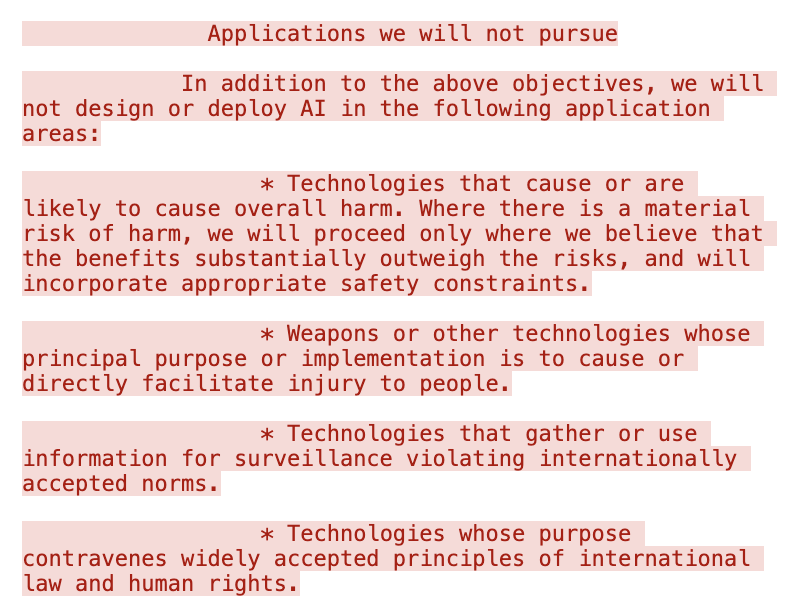Google Lifts AI Weapons Ban: A Shift in Tech Ethics and National Security
Google’s parent company, Alphabet, has made a major shift in its artificial intelligence (AI) policy, lifting a previous ban on using AI for weapons and surveillance technology. The move marks a departure from its long-standing ethical stance and has sparked fresh debates on the role of AI in warfare and global security.
Alphabet’s updated AI policy no longer prohibits AI applications that could “cause harm.” Instead, the company argues that businesses and democratic governments must work together to develop AI that “supports national security.
”In a blog post, James Manyika, Alphabet’s Senior Vice President, and Demis Hassabis, CEO of Google DeepMind, stated that AI has evolved significantly since Google first published its AI principles in 2018.
They emphasized the need for democratic nations to lead AI innovation while adhering to core values such as freedom, equality, and human rights.
“We believe that companies, governments, and organizations sharing these values should work together to create AI that protects people, promotes global growth, and supports national security,” the blog read.

A loop into the amended Article
The use of AI in military operations has been a subject of increasing discussion, particularly in light of conflicts such as the war in Ukraine.
AI-powered weapons, including drones and targeting systems, have reportedly played a role on the battlefield, providing a technological advantage to military forces.
A UK parliamentary report released in January highlighted how AI is changing modern defense strategies. Emma Lewell-Buck MP, who chaired the report, noted that AI is revolutionizing military operations, from back-office logistics to front-line combat.
However, the rise of AI-assisted weapons has raised ethical concerns. Campaigners, including the organization Stop Killer Robots, have voiced fears that autonomous weapons capable of making lethal decisions without human intervention could pose significant risks.Catherine Connolly of Stop Killer Robots warned of the consequences:
“The money that we’re seeing being poured into autonomous weapons and the use of AI targeting systems is extremely concerning.”
The ethical dilemma surrounding AI in warfare has also been highlighted by the Doomsday Clock, a symbolic measure of how close humanity is to global catastrophe.
“Systems that incorporate artificial intelligence in military targeting have been used in Ukraine and the Middle East, and several countries are moving to integrate AI into their militaries,” the latest Doomsday Clock statement read.
The statement raised concerns about how much decision-making power should be handed over to AI, especially in military actions that could result in large-scale casualties.
Google’s stance on AI ethics has evolved over the years. The company’s original founders, Sergey Brin and Larry Page, famously adopted the motto “Don’t be evil.”
However, after Alphabet was formed as Google’s parent company in 2015, the motto shifted to “Do the right thing.”In 2018, Google employees strongly opposed the company’s involvement in military AI projects under the U.S. Pentagon’s “Project Maven.”
Thousands of employees signed a petition, and several resigned in protest, leading Google to drop the project. The fear was that Project Maven would be the first step toward AI-powered lethal weapons.
Despite concerns about AI in warfare, Alphabet remains committed to expanding its AI initiatives. The company recently announced plans to invest $75 billion in AI projects in 2025, a 29% increase over analyst expectations.
The spending will focus on AI infrastructure, research, and commercial applications, including AI-powered search. This announcement coincided with Alphabet’s latest financial report, which showed weaker-than-expected earnings despite a 10% rise in digital advertising revenue, partially boosted by U.S. election spending.
Google’s decision to lift its AI weapons ban highlights the growing tension between technological advancement, ethical responsibility, and national security. While the company argues that democratic governments should lead AI development, critics worry about the risks of AI-driven warfare.
As AI continues to evolve, the world will closely watch how companies like Google balance innovation, profitability, and ethical considerations in an increasingly AI-driven world.
What do you think about AI in warfare? Should tech giants like Google be involved in military AI projects? Share your thoughts with us at DailyWestNile.info.
Join the Daily West Nile WhatsApp group now to never miss an update from us.Download Host Media Now from the Play Store to watch HostTV, listen to Host Rad